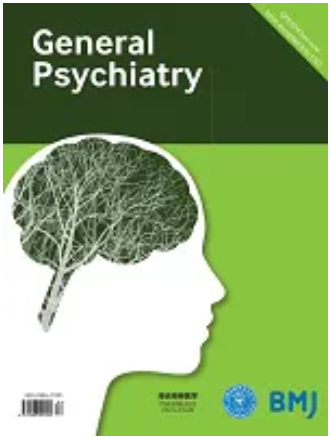成瘾相关疾病数字疗法专家共识概述
IF 5.3
3区 医学
Q1 PSYCHIATRY
引用次数: 0
摘要
成瘾性疾病已受到全世界的关注。中国药物滥用防治协会与成瘾性疾病数字疗法(DTx)共识小组共同发布了《成瘾性疾病数字疗法专家共识》。1 该共识讨论和总结了成瘾性疾病 DTx 的研究和应用现状,明确了其临床价值、应用方向、研发原则和未来前景。由于该共识是以中文发表的,因此可能不易为国际读者所了解。为此,我们在此对中国成瘾性疾病 DTx 专家共识进行概述。表 1 总结了共识中提出的建议。查看此表:2 根据《精神疾病诊断与统计手册》第五版,药物相关和成瘾性疾病是指涉及阿片类、甲基苯丙胺和酒精等 10 类不同药物的一系列广泛的药物相关疾病。药物相关和成瘾性失调的戒毒过程包括三个阶段:生理康复以缓解戒断症状,心理康复以减少精神依赖,社会功能恢复以促进重新融入日常生活。4 药物疗法、心理疗法和物理疗法等传统治疗方法面临各种限制,包括疗效有限、缺乏熟练的专业人员、费用高昂、治疗时间长和辍学率高等。5 在最近数字技术进步的推动下,DTx 成为应对这些挑战的潜在解决方案。它们方便、易于实施且经济实惠,可解决传统医疗资源分配不均的问题。DTx 指的是由数字技术措施支持的...本文章由计算机程序翻译,如有差异,请以英文原文为准。
Overview of the expert consensus on the digital therapeutics in addictive-related disorders
Addictive disorders have gained worldwide attention. The Chinese Association of Drug Abuse Prevention and Treatment, along with the consensus panel on digital therapeutics (DTx) for addictive disorders, has published an expert consensus on DTx for addictive disorders.1 This consensus discusses and summarises the current research and application status of DTx for addictive disorders. It identifies its clinical value, application directions, research and development principles, and future prospects. As the consensus is published in Chinese, it may not be easily accessible to an international audience. To address this, we present here an overview of the expert consensus on DTx for addictive disorders in China. The recommendations from the consensus are summarised in table 1. View this table: Table 1 Summary of the recommendations in the consensus Substance-related and addictive disorders have a significant impact on both physical and mental health and represent a contributing factor to crime.2 According to the Diagnostic and Statistical Manual of Mental Disorders, Fifth Edition, substance-related and addictive disorders refer to a broad range of substance-related disorders involving 10 distinct classes of drugs, including opioids, methamphetamines and alcohol.3 The detoxification process for substance-related and addictive disorders consists of three phases: physiological recovery to relieve withdrawal symptoms, psychological rehabilitation to reduce mental dependence and social function restoration to facilitate reintegration into daily life. The second phase, psychological rehabilitation, is often the most challenging.4 Conventional treatments such as pharmacotherapy, psychotherapy and physical therapy face various limitations, including limited effectiveness, a shortage of skilled professional staff, high costs, long treatment duration and high dropout rates.5 DTx, driven by recent digital advancements, have emerged as a potential solution to these challenges. They are convenient, easy to implement and affordable, addressing the uneven distribution of conventional healthcare resources. DTx refer to digital technology measures supported …
求助全文
通过发布文献求助,成功后即可免费获取论文全文。
去求助
来源期刊

General Psychiatry
医学-精神病学
CiteScore
21.90
自引率
2.50%
发文量
848
期刊介绍:
General Psychiatry (GPSYCH), an open-access journal established in 1959, has been a pioneer in disseminating leading psychiatry research. Addressing a global audience of psychiatrists and mental health professionals, the journal covers diverse topics and publishes original research, systematic reviews, meta-analyses, forums on topical issues, case reports, research methods in psychiatry, and a distinctive section on 'Biostatistics in Psychiatry'. The scope includes original articles on basic research, clinical research, community-based studies, and ecological studies, encompassing a broad spectrum of psychiatric interests.
 求助内容:
求助内容: 应助结果提醒方式:
应助结果提醒方式:


